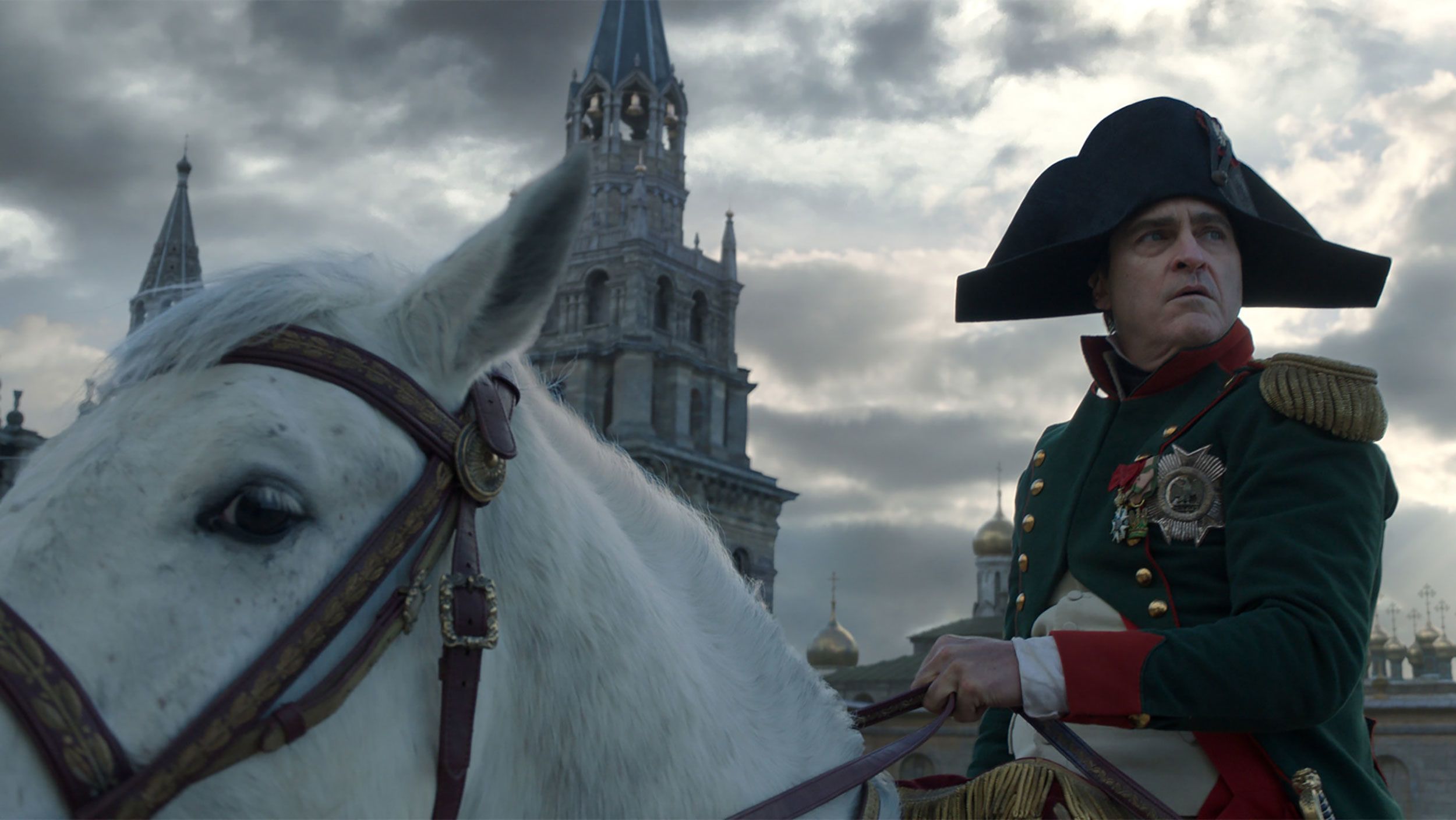The first clips of Ridley Scott’s Napoleon took the world by storm faster than the Grande Armée itself. The alliance of director and subject promised a triumph. Sadly, it delivered a dud.
Squeezing 20 years of continent-wide political and military tumult into 158 minutes was always going to leave important chapters on the chopping block, from Napoleon’s stellar first Italian campaign to his world-transforming record as an extremely competent administrator and reformist. Scott did not help his case with Bonaparte purists by bizarrely arguing that historians’ criticisms weren’t worth his time because they “weren’t there” during the Napoleonic Wars.
Some liberties were so jarring as to remove the viewer from the cinematic experience. Napoleon charges sabre-first on his horse like an impatient captain at the first opportunity. The Battle of Austerlitz, his greatest triumph, becomes a cartoonish mousetrap on ice. Waterloo is reduced to a frontal scrum. Creative liberties ought to make a film better, but here these grand and bloody era-defining battles instead become dull, one-dimensional affairs.
Yet the film’s main flaw is its asinine plot, and apparent indecision as to what it wants to be. Scott evidently wanted to cover Napoleon from crib to coffin, but the film lacks any convincing narrative thread to hold it. My best guess is that the director wanted to make a Napoleon and Josephine film. Given Vanessa’s Kirby’s acting chops, there probably is a decent Josephine crushed under this underwhelming Napoleon.
There is plenty of interest in the story of a widowed aristocratic snob who goes from lover to lover to protect herself, until she’s tossed into the arms of a scruffy Corsican; his love for her is met with cool indifference, before their power dynamic changes and the marriage progressively implodes. But Joaquin Phoenix’s offbeat performance results in a love story that is incredibly cold, only warmed up slightly by Napoleon’s incredibly passionate real-life letters to Josephine.
Napoleon was a divisive man: jealous and petty, but occasionally magnanimous. He was undeniably a tyrant but also ushered in political liberalism across Europe. A giant to the French, he remains an ogre to the English. What he was not, however, was a half-wit man-child. Phoenix plays Napoleon as a stupid figure, a characterisation the film struggles to square with the reality that the idiot depicted somehow became the most powerful man in Europe.
Phoenix claimed that he wanted to explore this “petit petulant tyrant”, harking back to Britain’s viciously effective anti-Bonaparte cartoons. When the film (finally) ends, the black screen lists the casualties of Boney’s wars. This is a blatant attempt to induce guilt in any viewers who might still have any admiration for Napoleon after such a character assassination. Yet the film itself does not earn the right to be so moralistic when it never fully exploits the angle of Napoleon as a bloodthirsty and callous ogre.
As a one-eyed Frenchman, I would have preferred a more heroic portrayal, but as a filmgoer I would have gladly settled for a movie about an increasingly egotistical and tyrannical dictator, rather than an unconvincing melodrama and Wikipedia-deep exploration of the Napoleonic biggest hits. Even as a piece of Anglo propaganda, the film falls flat on its face.
Scott had so many other angles to explore. His film could have been about Napoleon’s increasing obsession with winning the great power rivalry with England, but we are left guessing as to the strategic motives behind most of the battles in front of us. There is a convincing rags-to-riches story somewhere in the opening quarter of the film, where between the siege of Toulon and his Brumaire coup Napoleon climbs the greasy pole amid significant political chaos. Yet this is quickly discarded so as to move on to Phoenix’s wooden love story with Kirby.
Scott was provided with some of the richest source material in history and managed to suck all the grandeur from it. To make things worse, he added a near-permanent grey filter which aims for faux-gritty war realism but which only manages to neuter the gorgeous and largely historically accurate uniforms his teams have managed to assemble.
All in all, we are left with a Napoleon that will ultimately be forgotten, unlike its source material.











Join the discussion
Join like minded readers that support our journalism by becoming a paid subscriber
To join the discussion in the comments, become a paid subscriber.
Join like minded readers that support our journalism, read unlimited articles and enjoy other subscriber-only benefits.
Subscribe